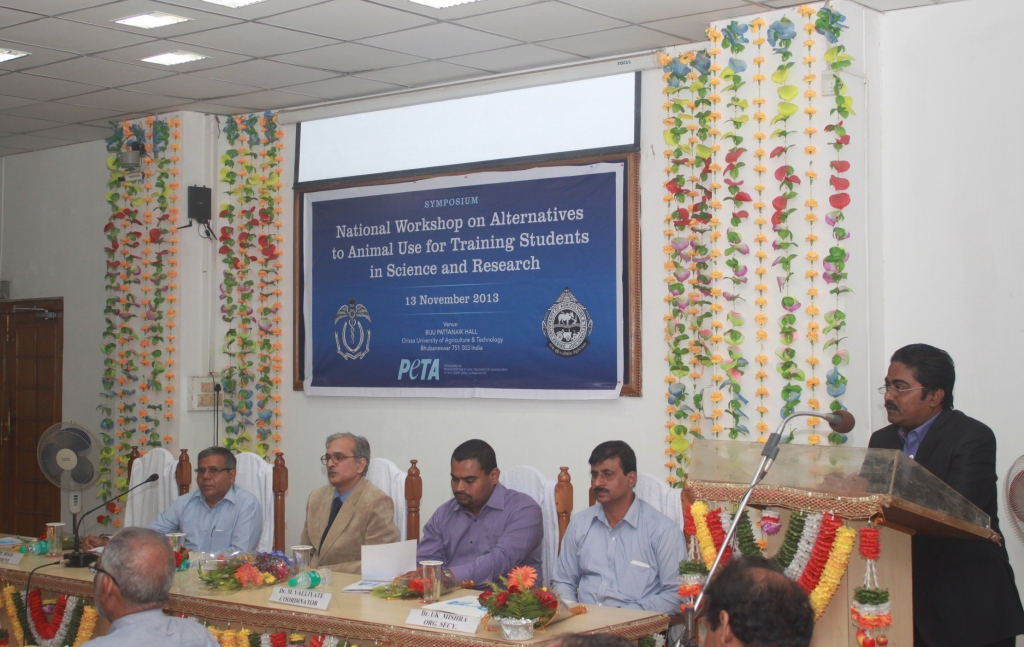PETA, OUAT Hold Compassionate Science Workshop
Orissa University of Agriculture & Technology (OUAT) – in association with PETA – organised a national workshop for medical, pharmacy, veterinary, zoology and other life-sciences professors, post-graduate students and researchers from colleges and research laboratories all over India in order to familiarise them with humane methods of educating students, such as by obtaining cadavers ethically and using non-animal models and computer-simulation programmes.

Dr PC Bisoi, a dean at OUAT; Dr AK Mahapatra, director of the All India Institute of Medical Sciences in Bhubaneswar; Dr Manilal Valliyate, PETA’s director of veterinary affairs; Dr Umakanth Mishra, Head of Anatomy Department at OUAT and RK Das, OUAT’s registrar.
The keynote speakers at the workshop, which was held on 13 November, included Professor MR Kar, the vice-chancellor of OUAT; RK Das, OUAT’s registrar; Dr PC Bisoi, a dean at OUAT; Dr Umakanth Mishra, head of Anatomy Department at OUAT and Dr AK Mahapatra, director of the All India Institute of Medical Sciences in Bhubaneswar. The speakers for the technical session included Dr RV Prasad, head of the division of pre- and para-clinical sciences at Karnataka Veterinary, Animal and Fisheries Sciences University in Karnataka; Dr V Ramakrishna, a retired professor of the Department of Anatomy and Histology at Karnataka Veterinary, Animal and Fisheries Sciences University; Dr Mohammad Akbarsha, director of the Mahatma Gandhi-Doerenkamp Center for Alternatives to Use of Animals in Life Science Education in Trichy; Dr Manilal Valliyate, PETA’s director of veterinary affairs; and Dr Chaitanya Koduri, PETA’s science policy adviser. More than 170 delegates from various colleges and research laboratories attended the workshop.
Every year, an estimated 1,000 calves are killed in India in order to teach veterinary anatomy and surgery to students, and countless frogs, rats, guinea pigs and rabbits have suffered and died in college laboratories for science training and research. Nearly every published comparative study in science-education literature has concluded that non-animal methods – including computer simulations, interactive CD-ROMs, films, charts and life-like models – teach anatomy and complex biological processes as well as or better than inhumane and archaic animal laboratories.
Because of the cruelty to animals inherent in dissection, it can deter students from succeeding in the sciences. Research has shown that a significant number of students at every educational level are uncomfortable with the use of animals in dissection and experimentation, and some even turn away from careers in science rather than violating their principles.
Many students are taking a stand against dissection. To help cut out dissection at your college or university, write to us at [email protected].





